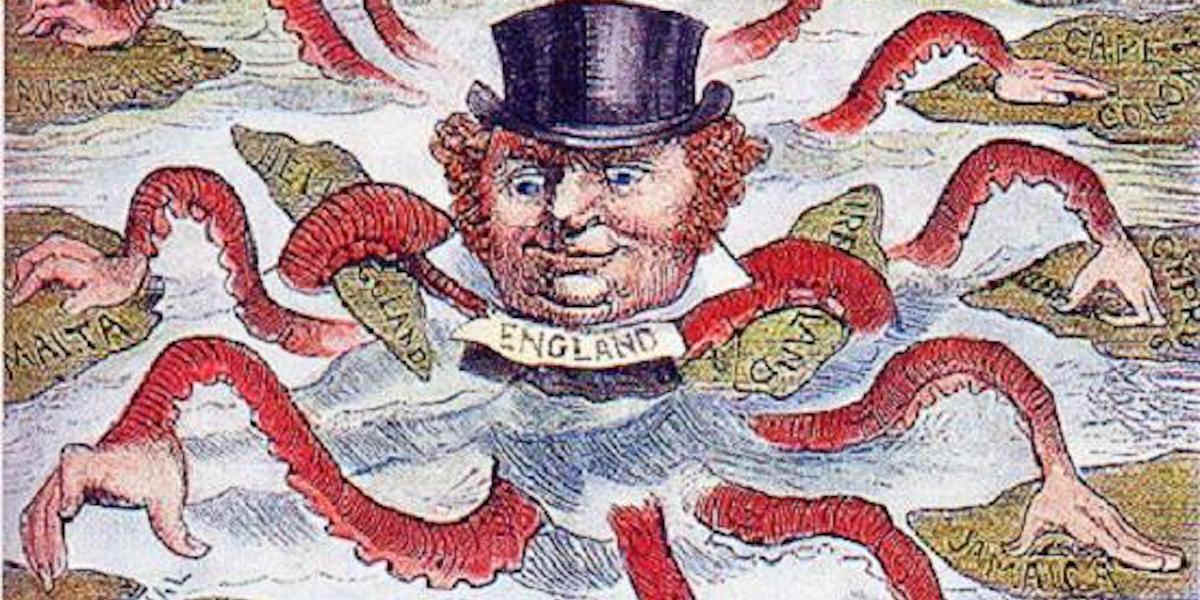Britain has never been an ‘island nation’. We didn’t fight them on the beaches by ourselves. We have never been cordoned-off from the wider world. Migration has been a mainstay of our history, leaving its mark on our language, our literature, our institutions and our culture. The Roman Empire and Anglo-Saxon invasions, the Norman conquest, and the rise and fall of the British Empire have all played a role in making our country what it is. And to this day, slavery, empire and migration have a long-standing impact both here and abroad.
The discourse that surrounded and followed the 2016 EU Referendum however reinforced colonial nostalgia, which has continued pertinence and power in the public imagination. Migration was a major fault line during the Brexit campaign, when the Commonwealth was frequently invoked to conjure up images of a very different Great Britain, one that saw ownership as synonymous with greatness and as a source of pride.
Such language worked for a reason – and still resonates with widely held beliefs. It’s why a punter in a Sky News Brexit vox pop, filmed in a Harrogate pub said, ‘I was watching a thing with the Queen, there’s billions of people in the British Empire, let’s get back to being a British Empire again’. It’s why an oft-quoted 2014 YouGov survey found that 59 per cent of people were ‘proud’ of the British Empire. That figure dropped to 48 per cent for 18-24-year-olds but that is still remarkably high. The survey didn’t tell us how ethnic minorities might respond to the question.
In this context, the use of awkward terminology like ‘Empire 2.0’ to describe plans for post-Brexit trade deals is less surprising. And there’s nothing like the chronic dearth of knowledge about the history of Ireland and Northern Ireland, or Ann Widdecombe comparing leaving the EU to the abolition of slavery, to make clear the urgent need for a realistic appraisal of our past and present relationships with the wider world. We need to ask: how did we arrive at the point where 49 per cent of people polled think countries were better off for being colonised by Britain?
Teaching empire
For answers, we need to look to the education system. How migration and empire have been taught in schools and represented in textbooks has shifted depending on who is in charge of Westminster. Until the 1960s, the curriculum implicitly supported the merits of the Empire, while avoiding its exploitative elements. The lack of rights colonised people had, and the violence they faced, didn’t make the cut. Even today, we’re not sure what exactly is being taught in our classrooms.
At Key Stage 3 and GCSE levels, topics like migration, empire, and the transatlantic slave trade can be taught as part of the History curriculum. What is actually taught is however largely dependent on the modules, topics or texts selected by individual schools, making it difficult to map what’s happening in classrooms.
Under the National Curriculum, students are meant to learn about ‘how Britain has influenced, and been influenced by the wider world’. Within that remit, there are suggested topics of study. Important historical developments are notably absent from those suggestions, including: the colonisation of the Caribbean, Irish Home Rule and migration to Britain following the Second World War.
In 2014 the Department for Education admitted that it did not know how many schools were teaching the slave trade to its students. A report we wrote at the Runnymede Trust with the TIDE project at the University of Liverpool found that only around four per cent of pupils studying GCSE History were taking an option called ‘Migration to Britain’, which also covers some empire. Considering that only 38 per cent of students take GCSE history to begin with, any intervention in schools should have a dual focus: teach these topics at Key Stage 3, if not earlier, and increase uptake of the GCSE options.
A recent survey found that over 70 per cent of teachers wanted training on teaching migration and empire
How the next Government might make commitments to educate on migration, colonialism and slavery is an open question. It could back the campaign to construct a memorial to enslaved people in Hyde Park and other similar public works. It could focus on teacher training and support with a plan to bring in phased curriculum reforms.
The Runnymede Trust, University of Manchester and University of Cambridge project Our Migration Story, which provides educational resources for teachers, found in a recent survey that 78 per cent of teachers wanted training on teaching migration and 71 per cent on teaching empire. If we give teachers the responsibility of tackling topics that they may not have learnt in school themselves, we should support them to do it well.
Whatever approach our next Government takes, history must be framed accurately, as the story of all of us, not as tokenistic or celebratory content. False-framing reinforces the artificial separation between ‘their’ history and ‘our’ history, between ‘us’ and ‘them’. The long-standing presence of minorities in Britain and why they moved here, and a comprehensive evaluation of their treatment by the state and by society, needs to be taught as part of the British national story.
This conversation isn’t about shame, it’s about honesty. We have many historical moments to be proud of, moments when ordinary people defended the rights of others. When we focus on individuals, or limit our knowledge to a specific roster of well-known events and periods of time, we miss out on the fraught, enchanting, chaotic, cruel and heroic people and periods that made our country what it is. A country that has beauty but also flaws. We’ll be stronger for recognising that fact.










